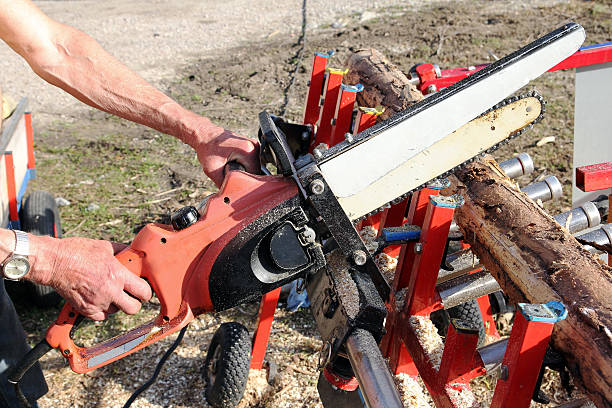Introduction
Chainsaws are indispensable tools for managing trees, clearing land, and handling various outdoor tasks. However, their power and potential for causing harm necessitate a clear understanding of local regulations. In Bonner County, specific laws govern the use of chainsaws to ensure safety, environmental protection, and compliance. This comprehensive guide provides an in-depth look at the Bonner County law on using chainsaws, including key regulations, safety measures, and maintenance tips.
Understanding Bonner County Chainsaw Regulations
General Chainsaw Usage Guidelines
Bonner County has established comprehensive regulations for the use of chainsaws. These guidelines are designed to ensure that chainsaw operations are carried out safely and responsibly. Familiarizing yourself with these rules is crucial for preventing accidents and legal issues.
- Operational Limits: Chainsaws must be used within the limits set by local regulations, which often specify the types of tasks allowed and the conditions under which they can be performed. Always check the local guidelines to ensure that your chainsaw use complies with these limits.
- Training Requirements: Users of chainsaws are often required to have proper training. This training ensures that individuals understand how to operate the equipment safely and effectively. In Bonner County, certification or proof of training may be required for specific types of chainsaw work.
Permits and Legal Requirements
Certain activities involving chainsaws in Bonner County Law on Using Chainsaws may require permits. This is especially true for large-scale projects such as land clearing or tree removal.
- Permit Application: To obtain a permit, you typically need to submit an application to the local government or forestry office. The application process may involve detailing the scope of your project, providing safety plans, and paying any applicable fees.
- Permit Fees: Fees for permits can vary depending on the type and scale of the project.
- Permit Renewal: Some permits may be valid for a limited time and require renewal. Keep track of your permit’s expiration date and renew it as needed to avoid any interruptions to your project.
Safety Requirements for Chainsaw Operation
Safety is paramount when operating a chainsaw, and Bonner County regulations include several safety requirements to protect both the user and others.
- Personal Protective Equipment (PPE): Users must wear appropriate PPE, including a helmet with face shield, gloves, eye protection, hearing protection, and sturdy clothing. This equipment helps protect against debris, noise, and potential accidents.
- Chainsaw Maintenance: This includes checking the chain tension, sharpening the chain, and ensuring that all safety features are operational.
- Safe Operating Procedures: Bonner County regulations may outline specific procedures for operating chainsaws, such as maintaining a safe distance from other people, avoiding operation in adverse weather conditions, and ensuring a clear work area.
Environmental and Noise Considerations
Chainsaw use can impact the environment and generate significant noise, leading to regulations aimed at mitigating these effects.
- Noise Regulations: Chainsaws can be noisy, which can disturb neighbors and wildlife. Bonner County has specific regulations on allowable noise levels and times of operation. Be aware of these rules to avoid complaints and potential fines.
- Debris Management: This helps prevent environmental hazards such as fire risks or pollution. Follow local guidelines for managing and disposing of debris.
Maintenance and Inspection of Chainsaws
Regular maintenance is essential for safe and efficient chainsaw operation. Bonner County regulations emphasize the importance of keeping your equipment in good condition.
- Routine Checks: Perform regular inspections of your chainsaw, including checking the chain tension, oil levels, and overall condition. Address any issues promptly to prevent accidents and ensure optimal performance. This can help ensure that all components are functioning correctly and safely.
- Record Keeping: Maintain records of all maintenance and repairs performed on your chainsaw. This documentation can be useful for compliance purposes and for tracking the history of your equipment.
Consequences of Violating Chainsaw Regulations
Failure to adhere to Bonner County chainsaw regulations can result in various consequences, from fines to legal action.
- Fines: Violations of chainsaw laws can result in monetary fines. The amount of the fine can vary depending on the nature and severity of the violation.
- Legal Action: In more serious cases, legal action may be taken against individuals who consistently violate regulations or fail to address violations promptly. This can include court proceedings and additional penalties.
- Corrective Actions: This could involve stopping chainsaw operations, making necessary changes to comply with regulations, and providing evidence of compliance.
Conclusion
Adhering to Bonner County Law on Using Chainsaws is essential for ensuring safety, protecting the environment, and remaining compliant with local regulations. By understanding and following the guidelines for chainsaw use, including obtaining necessary permits, wearing appropriate safety gear, and managing noise and environmental impacts, you can contribute to a safer and more responsible chainsaw operation. Always stay informed about local regulations and make sure to operate your chainsaw in accordance with the established rules.
FAQs
1. What types of chainsaw activities require a permit in Bonner County?
Large-scale activities such as land clearing or significant tree removal may require a permit. Check local regulations for specific requirements.
2. What personal protective equipment is required for chainsaw use?
Required PPE includes a helmet with face shield, gloves, eye protection, hearing protection, and sturdy clothing.
3. Are there noise restrictions for chainsaw operation in Bonner County?
Yes, there are regulations to manage noise levels and minimize disturbances to neighbors and wildlife. Be aware of allowable noise levels and operation times.
4. How often should I perform maintenance on my chainsaw?
Regular maintenance should be performed according to the manufacturer’s recommendations and local guidelines. This includes checking chain tension, oil levels, and overall condition.
5. What should I do if I receive a violation notice for chainsaw use?
Follow the instructions provided in the notice, address the issue promptly, and take corrective actions to comply with regulations to avoid further penalties.
